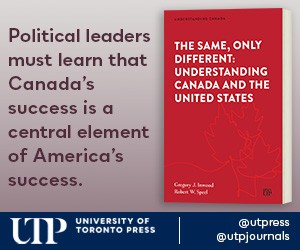Blacklock’s shareholders issued the following statement: The Attorney General and a federal judge are enacting new rules allowing password sharing. This impacts all internet users nationwide. It follows a Federal Court decision in Blacklock’s Reporter v. Attorney General, case number 2024 FC 829.
This is the law by September 1 without an appeal. The ruling runs to 67 pages but the key paragraph is number 136. What does it mean? Here are the answers:
Can I share my passwords? Yes, so long as you can think up some “legitimate business reason.” You don’t have to literally be in business. This is up to you. One legitimate business reason could be saving money on passwords.
What type of password can I share? Any kind at all. The rule applies to any ordinary password to websites, newspapers, video and music services, library databases, scientific or technical journals, peer-reviewed periodicals, you name it.
What if terms and conditions say I can’t share? It doesn’t matter. The judge ruled Blacklock’s terms were “plainly visible” and clearly prohibited password sharing without permission. Blacklock’s even sent the password buyer two written notices with a number to call if they intended to “share or distribute content.” The judge dismissed it as irrelevant.
How many times can I share my password? As often as you like. The Parks Canada manager in the case shared her password with every co-worker who asked, at least nine people. Could those nine people each share the password with nine of their friends? Of course. Parks Canada at the time had 2,16o employees.
Michael Geist, Canada Research Chair at the University of Ottawa, called the ruling a “huge win” for people who don’t want to pay for content on the internet. There are “enormous implications for libraries,” he wrote. The University of Toronto Library serves 97,000 students. Under the new rule, password sharing mushrooms from 9 to 900 to 97,000 without payment or permission.
Doesn’t this have consequences for companies that rely on passwords? Yes, it is catastrophic.
Will Blacklock’s appeal this ruling? We are a small business like a million others. We have spent eight years and $538,665 fighting the Attorney General and Federal Court to uphold property rights. FC 829 should be appealed to the Supreme Court, but large corporations and trade associations relying on electronic commerce cannot leave it to Blacklock’s alone to litigate the definition of “password” in Canada in the digital age.
Parties interested in joining an appeal with financing should contact counsel: Scott Miller, c/o MBM Intellectual Property Law. 275 Slater Street, 14th Floor, Ottawa K1P 5H9.
The deadline is Friday, August 30 at 6 pm Eastern. After that moment, password sharing is law.









